Reviews
Neil Berkeley
USA, 2012
Credits
Review by Victoria Large
Posted on 26 April 2012
Source Streaming video
Categories The 2012 Independent Film Festival Boston
At IFFB last year, Constance Marks’ Kevin Clash profile Being Elmo gave viewers a glimpse at the career of a majorly influential figure in the world of children’s television. Meanwhile, director Jarred Alterman’s enigmatic documentary Convento offered a meditation on life in a family full of artists. This year, Beauty is Embarrassing, the feature debut of director Neil Berkeley, recalls both of the above films while staking out a territory of its own.
Berkeley’s subject is Wayne White, an artist perhaps best known for his distinctive set and character design work on children’s television shows like Pee Wee’s Playhouse and Beakman’s World. Part of the fun of the film is just finding out how many familiar (and very cool) projects White has contributed to. White also has a serious subversive streak (very early in the documentary, we see him display a painting called “Picasso’s Ass Falling Off,” which is just what it sounds like) and a yen to entertain, characteristics that make him an engaging figure for us to follow around.
Of course, the drawing card for many will be the connection to the anarchic kiddie classic Pee Wee’s Playhouse, and Beauty is Embarrassing offers some great tidbits for Playhouse fans, including details about the show’s lo-fi first season, which was shot in a New York City loft. Key members of the show’s creative team, including co-production designer and puppeteer Ric Heitzman, production designer and set decorator Gary Panter, producer Prudence Fenton, and the show’s star, Paul Reubens discuss the show, and White’s work, with tremendous fondness, even when discussing its shoestring production values and their own inexperience. (White made the “Dirty Dog” character out of an oven mitt.) Perhaps niftiest of all, we get access to recollections and footage of “Flocked Box Theatre,” an alternative puppet show that the creative team put together during their off-hours on the set of Pee Wee’s Playhouse. Panter describes it as “psychedelic garble,” and its very existence reinforces the subversive qualities of both the series and White’s art.
But even those who come mainly for the Pee Wee’s Playhouse-related Easter eggs will leave with more. White’s work, which includes a series of highly successful “Word Paintings” - thrift store art with sometimes-cryptic, often-funny words and phrases painted over them - raises issues surrounding what it means to be so-called serious art, and indeed, why the art world places such little value on laughter. The film also tangles with big, answerless questions about art’s intersections and conflicts with commerce, as well as the pressures it can place on family life. “Now everyone will know of my sufferings,” White jokes wryly, and one of the most enjoyable elements of the film is its occasionally spiky quality, a funny forthrightness that suits its subject well.
Far from being starry-eyed over “the Hollywood myth” or his brushes with MTV (White claims he was “ignored like a leprous nerd” at the 1997 Video Music Awards, where he was nominated for his gorgeous Méliès-inspired work for the Smashing Pumpkins’ “Tonight, Tonight”), White expresses ambivalence about his time as “supposedly a hot property” in Los Angeles, obviously proud of his success but burnt out on the system. Yet while he repeatedly worries about sounding “too bitter” on camera, he mostly just sounds realistic, and his cynicism about the monetization of art is more than balanced by the joy he obviously takes in creating it.
Berkeley also adds depth and nuanced to our view of White, and, indeed, the lives of creative people, with the inclusion of some striking supporting players. White’s wife Mimi Pond, a writer and artist who penned The Simpsons’ first full-length episode, acknowledges the sacrifices that she made in her own career by choosing to focus on raising her and Wayne’s two children, both of whom are now artists themselves. Meanwhile, White’s college best friend (and definite kindred spirit) Mike Quinn, now an art teacher in White’s home state of Tennessee; says that he “did not have the gumption,” to pursue the kind of high-profile career that White has had. Neither Pond nor Quinn seems resentful, but they offer us alternative glimpses of possible lives for artists, and it’s to Berkeley’s credit that he lets these different possibilities coexist in his film, just as they do in life.
Yet even as he celebrates creativity, Berkeley refreshingly resists the urge to sentimentalize any of the paths taken by his interviewees. There are challenges and rewards for every artist that we meet here, and the result is a film that, like Keith Fulton and Louis Pepe’s Lost in La Mancha, understands both the pleasures and frustrations of being a working artist. Beauty is Embarrassing is all the more uplifting for its honesty.
More The 2012 Independent Film Festival Boston
-
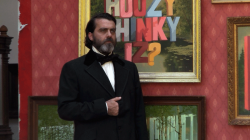
Beauty is Embarrassing
2012 -
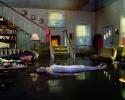
Gregory Crewdson: Brief Encounters
2012 -
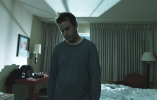
Sleepwalk with Me
2012 -

Liberal Arts
2010 -

Burn
2012 -
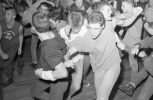
All-Ages: The Boston Hardcore Film
2012 -
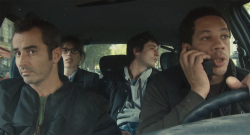
Polisse
2011 -
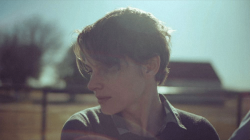
Sun Don’t Shine
2012 -

Headhunters
2011 -
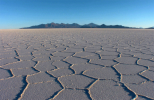
Cerro Rico, Tierra Rica
2011 -
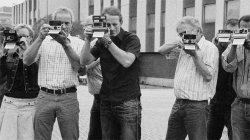
Time Zero: The Last Year of Polaroid Film
2011 -

Jason Becker: Not Dead Yet
2012 -
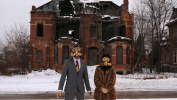
Detropia
2012 -
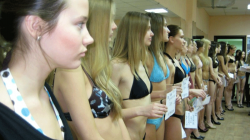
Girl Model
2011 -
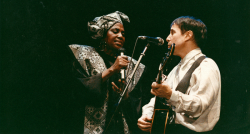
Under African Skies
2012 -

The Central Park Effect
2012 -
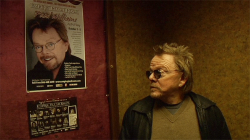
Paul Williams: Still Alive
2011 -

Trishna
2012 -

The Queen of Versailles
2012
We don’t do comments anymore, but you may contact us here or find us on Twitter or Facebook.



